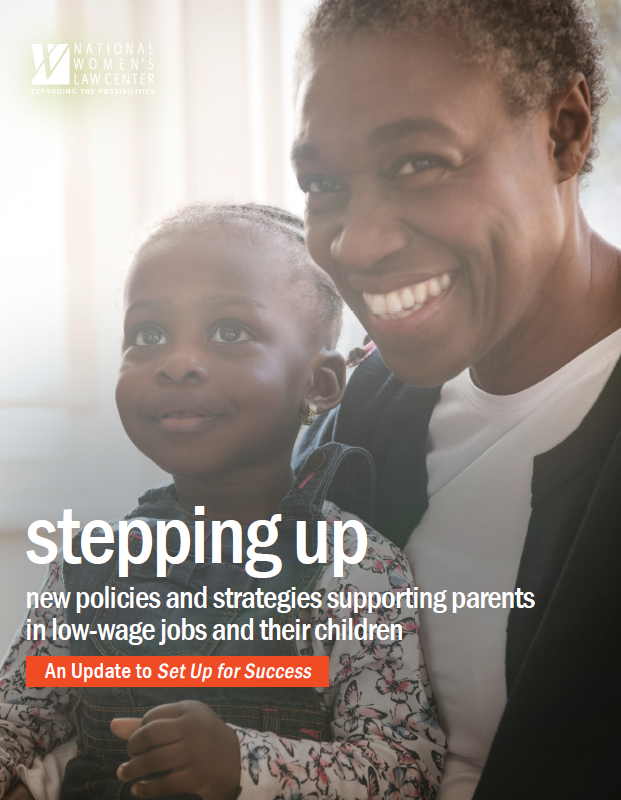Abortion rights, women of color, and LGBTQIA+ people are under attack. Pledge to join us in fighting for gender justice.

 In recent years, the policy landscape at the federal level and in some states has in many ways become extraordinarily inhospitable to families—especially immigrant families—who are struggling to make ends meet and provide for their children. Far too many families find themselves set up to fail, with millions of parents across the country working in jobs in which low wages, unfair scheduling practices, and minimal benefits make it difficult to meet both work and caregiving responsibilities. And the parents most likely to work in low-wage jobs are women—disproportionately women of color and immigrant women—who are often raising very young children on their own.
In recent years, the policy landscape at the federal level and in some states has in many ways become extraordinarily inhospitable to families—especially immigrant families—who are struggling to make ends meet and provide for their children. Far too many families find themselves set up to fail, with millions of parents across the country working in jobs in which low wages, unfair scheduling practices, and minimal benefits make it difficult to meet both work and caregiving responsibilities. And the parents most likely to work in low-wage jobs are women—disproportionately women of color and immigrant women—who are often raising very young children on their own.
Against this backdrop, however, it is all the more important to recognize that a substantial number of states, localities, and private actors—from working people to community-based organizations to large companies—have taken important steps in the past two years to improve the lives of low-wage working parents and their children.
Stepping Up: New Policies and Strategies Supporting Parents in Low-Wage Jobs and Their Children provides examples of the ways in which different stakeholders have implemented new policies, practices, and strategies to advance the key goals outlined in the National Women’s Law Center’s June 2016 report, Set Up for Success:
- Increase parents’ incomes.
- Ensure parents are treated fairly in the workplace and have stable, predictable work schedules.
- Expand children’s access to high-quality, affordable child care and early education.
- Increase parents’ access to paid sick days and paid family and medical leave.
- Improve parents’ opportunities to obtain education and training that can help them advance into better jobs.
